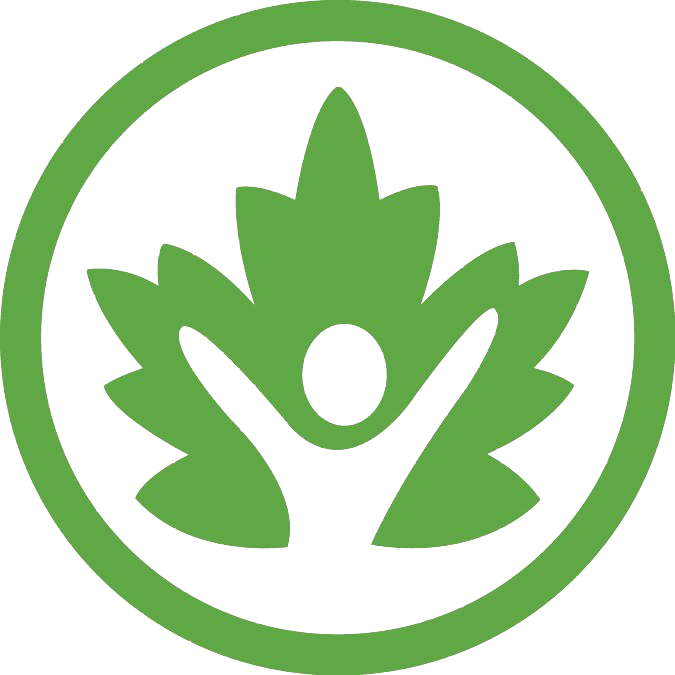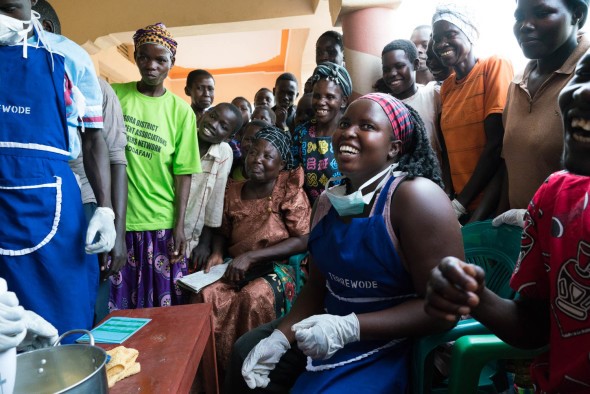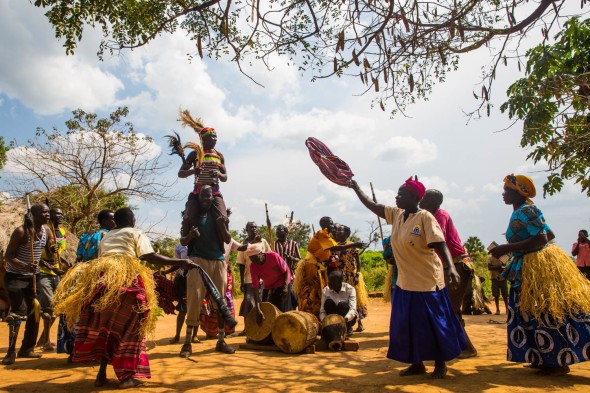By Ron Severson
As director of MAPLE Microdevelopment, I recently returned from a one-month visit to MAPLE’s field offices in Uganda. This was my seventh visit since MAPLE started operations in Uganda eight years ago, so being there with Ugandan colleagues and friends is beginning to feel like a second home. While much happened during my visit, this blog entry focuses on MAPLE’s growing partnership with TERREWODE. A Ugandan NGO founded by Alice Emasu, TERREWODE focuses on preventing obstetric fistula, identifying and treating girls and women who have suffered fistula, and restoring survivors to lives of dignity (Check it out! http://terrewodeug.org/). MAPLE is partnering with TERREWODE to help fistula survivors develop sustainable income generating opportunities. We are starting by building a business, together, to export handmade, all-natural goat milk soap made by fistula survivors in the Teso sub-Region of Uganda to Italy. More on that later in this blog entry!
Fistula is a birthing injury that occurs when a hole forms between a women’s birth canal and rectum or bladder, often leaving her incontinent of urine and feces. In wealthier nations obstetric fistula has nearly been eradicated. Yet over 200,000 women in Uganda currently suffer from this condition, and those who do are often ostracized due to misunderstandings about the causes and treatability of the condition. The causes of obstetric fistula are many and include inadequate access to medical care and illegal practices of child marriage still occurring in some villages, but these and other causes mostly arise from realities associated with living in poverty.
TERREWODE is the leading organization in Uganda dedicated to eradicating obstetric fistula. Together with other organizations, TERREWODE is transforming the lives of girls and women, not only through prevention, treatment, and rehabilitation but also through advancement and increased enforcement of the rights of girls and women—the right to avoid childhood marriage, the right to attend school, the right to medical care, the right to own land, the right to make a livelihood.
MAPLE Microdevelopment is devoted to assisting families and communities achieve financial self-sufficiency through education and entrepreneurship. We are not a health services organization. Yet, anyone from a family or community that struggles economically knows how difficult it is to separate issues of health and well-being from economic empowerment. Entrepreneurial businesses often fail if a person or a family member becomes ill. At the same time, strengthening the capacity to generate income and to support others can also strengthen one’s dignity. This is particularly true for fistula survivors in Uganda, which makes TERREWODE Uganda and MAPLE Microdevelopment Uganda strong partners. In its core areas of expertise, MAPLE can assist the women served by TERREWODE to build and manage sustainable sources of income.
For almost a year, now, TERREWODE and fistula survivors who live in rural areas in the Teso sub-Region of Eastern Uganda have been working to start a goat milk soap project. When Joni Kabana, a photographer from Oregon, visited TERREWODE and gave Alice Emasu, TERREWODE’s founder and director, a gift of goat milk soap from a ranch near Spray, Oregon, Alice immediately said, “We could do this ourselves!”
Since then, much has happened, and this blog entry will not do justice to the full story. Let it suffice to say that TERREWODE received an initial grant to obtain and raise milk goats, that fistula survivors are now rearing and milking those goats, that Dardi Troen, a designer and soap-maker from Portland, Oregon, helped train fistula survivors to make beautiful, all-natural soap with goat milk and local shea butter, that students from Oregon State University’s Humanitarian Engineering Program tested the soap under various conditions and production processes, and that MAPLE Microdevelopment is now working closely with TERREWODE to design and implement a viable business plan to empower fistula survivors and their communities.
I experienced some pretty amazing things in relation to this project during the month of July. Together with Rogers Muduku, our country director, Hyacinth Walimbwa, MAPLE field officer, and Chris Kuhn a UO grad and intern, I visited TERREWODE in Soroti, Uganda, twice for several days. It’s an ever-inspiring place with ever-inspiring leaders, management team members, trainers--and particularly the fistula survivors themselves. During our first visit, TERREWODE was conducting a two-week rehabilitation program for fistula survivors whose surgeries had not yet succeeded. While the first surgery for women who suffer this condition often succeeds, TERREWODE is expanding their outreach to serve women whose surgery has so far been unsuccessful.
It would be difficult to imagine a more resilient group of people anywhere in the world than the women involved in this session. Some of them had received no treatment or support for 20 years or more; others were still teenagers. Most had lost a child during birth; others had a child with them. The women were sharing their stories, supporting one another, learning to manage the physical, social, and psychological dimensions of living with fistula, crying and laughing together, gaining skills in income generation such as baking, weaving, tailoring, and making soap, and participating in drama and song as a way to express themselves and raise awareness in their own villages when they return. All were emerging from isolation into a community made strong through shared experience and a shared commitment to end fistula, forever.
We also visited a village, where fistula survivors and solidarity groups sang, danced, and performed a drama for women attending the two-week rehabilitation session. While the women connect strongly with each other at TERREWODE’s Reintegration Center in Soroti, it means a lot to them to meet other women who have returned to their villages and have been able to reestablish strong, dignified livelihoods. At the end of the performances, the two groups of women met and embraced. After that, everybody danced. (Yeah, even me. That’s what you do, and no one judges you on style points. Good thing in my case.) These outreach and introduction sessions constitute one of the many ways TERREWODE forms a network of supporters dedicated to eradicating obstetric fistula and respecting, even celebrating survivors of this condition all across Uganda.
Also during this first visit, our MAPLE team engaged in several dialogues about the soap making project to map out the principles guiding this new business as well as the direct and indirect costs of producing soap, locally, and establishing a distribution channel, internationally. We also took inventory of all materials currently used in the soap making project. Of course, some of the soap will be sold or gifted locally, within and across villages, yet selling among neighbors does not produce the returns necessary to break long-standing cycles of poverty. The same characteristics that make local soap ordinary and low-priced in Uganda also make it uniquely valuable in regions of the world where many people wish to use soap that is not mass produced, that is free of artificial additives, and that benefits others and the environment.
Visiting one of the villages where rearing and milking the goats is occurring was a highlight. Partly the visit was made to understand the costs associated with raising goats, a necessary step to design a viable financial model and to understand issues related to scaling the business over time. Yet, meeting the fistula survivors locally in charge of the project and seeing the fistula solidarity group members tend to the gardens, feed and milk the goats, and build onto the goat sheds to make room for new goats gave me a much stronger sense of the community-nature and potential of this project. Children loved the goats, too, of course, and the kid goats (as the original goats are now reproducing at a fine pace!) love to sneak out of their pens if they can, frolic around with children from the village chasing after them, and play king of the hill on any nearby anthill.
This particular village had four goats, two female goats, a male goat, and one kid goat. The other female goat was pregnant with what must be twin goats! The two female goats produce about five liters of goat milk a day. That’s enough goat milk to make 800 1.2 ounce bars of soap, the unit size of soap needed for the current international market opportunity. Some other issues also became more apparent during the visit to the village. As the village has no access to electricity, the milk cannot be preserved very long. When soap is being made centrally at the TERREWODE Reintegration Center in Soroti, it needs to be transported immediately. We hope to resolve this issue by investing in solar refrigerators for each village involved, but have yet to test this part of the process.
On the day before leaving Uganda, I met with Alice Emasu and TERREWODE’s financial directors, Lillian Awizia and Amudu David, at TERREWODE’s Kampala office. The purpose of the meeting was to further develop the business plan, particularly the pricing model, the logistics of the pilot phase, and the long-term revenue projections. While it is difficult to project future revenues prior to conducting the pilot, we all agreed that this is a social business. Any decisions made must include the fistula survivors and must improve their health and well-being, strengthen their communities, raise awareness about fistula, and advance the rights of girls and women in Uganda—while also producing high quality soap. We also discussed several possible ways that members of village solidarity groups for fistula survivors could participate in income generating activities as part of scaling the business over time. Shea nuts grow naturally in the area. Some community members could process the nuts into shea butter, thereby replacing the current cost of purchasing shea butter.
Other members could be in charge of printing, packaging, and messaging for end users of the soap and for transport. Still others could engage in complementary businesses: buying and selling of milk goats; selling surplus milk; bee keeping and honey harvesting (as bees’ wax can be used as a substitute for lye in the making of soap); building goat sheds; planting and harvesting of multiuse plants like ground nuts (the goats eat the greens while people eat and sell the nuts); buying and selling of veterinary supplies in hard-to-reach villages; training of fistula survivors and solidarity groups in other villages as the business scales. Furthermore, we agreed that some of the revenues produced from this social business should go directly into the savings and loan funds managed by fistula survivors and solidarity groups to support new income generating activities, help pay school fees to keep youth (especially girls) in school past primary level, and cover transport to hospitals for women who experience complications in their pregnancy. In short and in so many ways, this project can become much more than a cottage industry!
I will close with the most recent update on this project. Currently, women in five villages continue to raise and milk the goats, the goats continue to reproduce, and some fistula survivors know how to make beautiful goat milk and shea butter soap. Alice Emasu and TERREWODE would like to ensure that women from all five participating villages can participate in the soap making process and earn sustainable incomes from this business as it grows, so TERREWODE is preparing to train new soap makers in the next test run of soap-making in Soroti. This next test run is also necessary for making all process improvements to have the soap approved by the Ugandan Bureau of Standards for sales. Dardi Troen is designing the packaging and Joni Kabana is drafting the messaging for the soap—as the messaging about eradicating fistula in this case is as important as the product itself. This may include small weavings in a particular design made by the women themselves in their villages in combination with printing. MAPLE has found an initial buyer for the pilot phase of international soap distribution—one of MAPLE’s own board members! Cliff Johnson, co-founder with Eric Breon of Vacasa, a rapidly growing, worldwide vacation rental business (check it out https://www.vacasa.com/) manages the international markets for Vacasa. He is interested in doing what he can, within Vacasa’s business model, to ensure that Vacasa has a positive social and environmental impact on communities. He has agreed to purchase the pilot shipment of soap for testing in Vacasa’s Italian market. Conducting this pilot will enable MAPLE and TERREWODE to establish an international distribution channel and will provide us all with the necessary customer feedback and data necessary for predicting demand and planning for growth over time. Also, the MAPLE Uganda team continues their financial and market analyses to build and implement a viable business model, and we at MAPLE headquarters in Eugene, Oregon, have nearly completed the initial business plan based on field research in Uganda and international market research.
Lastly, another MAPLE board member, Emily Myers, has developed a crowdfunding site through which anyone, from anywhere in the world, using any currency, can donate to support the pilot phase of this amazing project. The site will be up from today, August 25, 2016, through October 23, 2016. 50% of the $3,000 target amount will go to TERREWODE and 50% will go to MAPLE, in both cases to help cover the costs of making this pilot successful.
So, if you do nothing else, please check out this crowdfunding site right now! https://pozible.com/project/uganda-soap-by-fistula-survivors
Let’s help fistula survivors make beautiful soap, tell their stories to the world to help women everywhere, and earn income to support themselves, their families, and communities!
Thanks!
Ron Severson, Executive Director, MAPLE Microdevelopment
Photographs provided by Joni Kabana
Check it out http://jonikabana.com/ !


